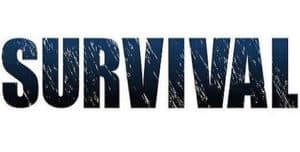Now is the time to organize your records and put together something we call a “go file” to grab during an emergency, or put them in your bug out bag. These will be some important documents to take with you in a disaster.
Many of these you might already carry around with you or have conveniently located, but probably not all of them, and it’s a good idea to have them ready when SHTF. These are documents you will need to prove who you are, handle your finances, get help, buy things, contact people, and a whole lot more if you must evacuate your home for any reason.
When you rush out the door, you could very easily be forgetting vital information for your financial survival over the coming days or even weeks. Some of this may already be in your wallet/purse — assuming you remember to grab those.
The things you probably already have normally available include your drivers license, credit cards, bank account info, health insurance id’s, and some cash. However, you also want to remember your contact list for family/friends, doctors, dentist, lawyer, insurance, records, and other important resources — As well as some other documents you likely won’t think of.
You need to organize your records and create a go file to take with you when you gotta bail out. We suggest putting this in or near your bug out bag, so everything is in one place ready to go.
Here are some of the documents we recommend having ready to take with you:
1) Identification
These things include more than just your driver’s license. You may also need your birth certificate, social security card and passport. The documents are crucial if you have to re-establish your identity with financial institutions because you need new credit cards, access to your bank account, or many other things. Make sure you also take your health insurance cards with you in case you need medical help.
2) Home Inventory & Insurance
Walk through your house and record all of your possessions — including things in closets and drawers — and document the condition of your residence before anything was damaged. This can be very helpful to prove your losses when you file a claim with insurance. Keep receipts and appraisals for valuable items or major purchases. Have copies of your home and auto insurance policies available, which will include information about what is covered and how to contact the company to start your claim.
3) Financial Statements
Keep a log of recent statements from your credit cards, banks, investments, retirement accounts, car loans, student loans, mortgage, other loans, etc… These documents contain contact information, your account numbers, and other important info you will need. It’s pretty obvious why you will need this data in a disaster scenario.
4) Taxes
Even in non-emergency everyday life, you should keep your tax records for at least the past 3 years since that is the amount of time the IRS generally has to do an audit. But you definitely want last years returns with you at the very least if you must leave your home quickly.
5) Legal Docs
Keep mortgage papers, your will, healthcare proxy, power of attorney, car registration, and other legal documents in a safe place and ready to take with you.
That’s pretty much it for our suggestions on the emergency documents you need and should have ready to grab in a disaster. This does NOT mean there aren’t other documents you may need. These are simply recommendations on some of the most common. Be sure to go through your life and decide on any others you might need to include.
Also, remember this “go file” is something you will need to update relatively often since your finances, statements, records, and other data tend to change somewhat frequently. Don’t put it off or forget about it because it might very well be the most important thing you could have with you in certain emergency situations.
